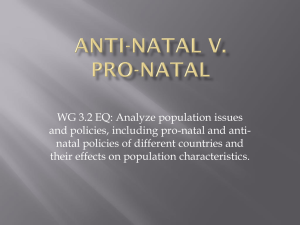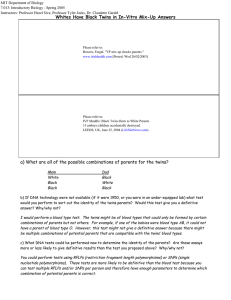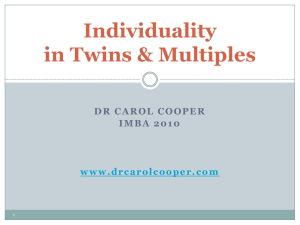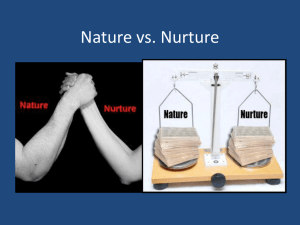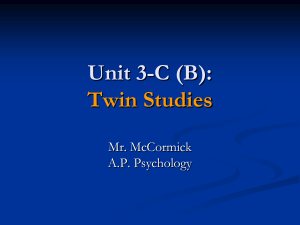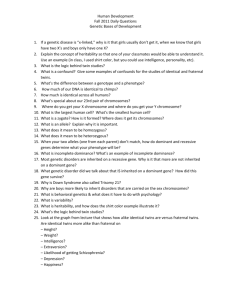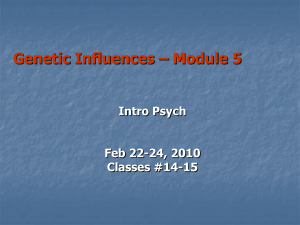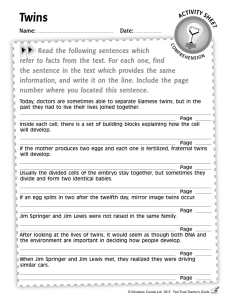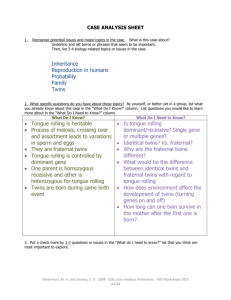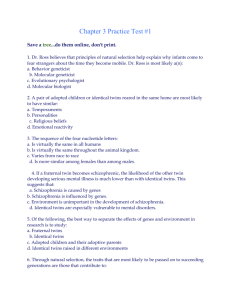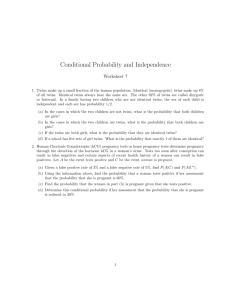Psychology Group –Biological Approach presentations Name
advertisement
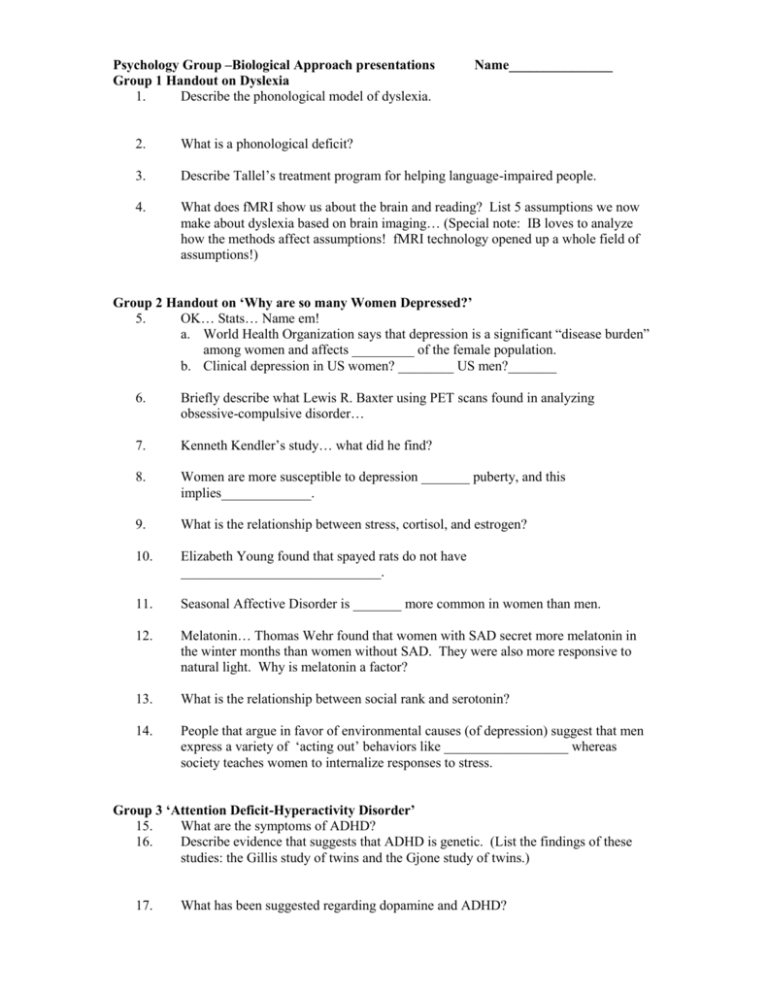
Psychology Group –Biological Approach presentations Group 1 Handout on Dyslexia 1. Describe the phonological model of dyslexia. Name_______________ 2. What is a phonological deficit? 3. Describe Tallel’s treatment program for helping language-impaired people. 4. What does fMRI show us about the brain and reading? List 5 assumptions we now make about dyslexia based on brain imaging… (Special note: IB loves to analyze how the methods affect assumptions! fMRI technology opened up a whole field of assumptions!) Group 2 Handout on ‘Why are so many Women Depressed?’ 5. OK… Stats… Name em! a. World Health Organization says that depression is a significant “disease burden” among women and affects _________ of the female population. b. Clinical depression in US women? ________ US men?_______ 6. Briefly describe what Lewis R. Baxter using PET scans found in analyzing obsessive-compulsive disorder… 7. Kenneth Kendler’s study… what did he find? 8. Women are more susceptible to depression _______ puberty, and this implies_____________. 9. What is the relationship between stress, cortisol, and estrogen? 10. Elizabeth Young found that spayed rats do not have _____________________________. 11. Seasonal Affective Disorder is _______ more common in women than men. 12. Melatonin… Thomas Wehr found that women with SAD secret more melatonin in the winter months than women without SAD. They were also more responsive to natural light. Why is melatonin a factor? 13. What is the relationship between social rank and serotonin? 14. People that argue in favor of environmental causes (of depression) suggest that men express a variety of ‘acting out’ behaviors like __________________ whereas society teaches women to internalize responses to stress. Group 3 ‘Attention Deficit-Hyperactivity Disorder’ 15. What are the symptoms of ADHD? 16. Describe evidence that suggests that ADHD is genetic. (List the findings of these studies: the Gillis study of twins and the Gjone study of twins.) 17. What has been suggested regarding dopamine and ADHD? 18. Explain what ‘executive functions’ are. List the 4 executive functions. 19. What does Ritalin to do Dopamine transporters? Group 4 ‘The Genetics of Cognitive Abilities and Disabilities’ 20. What is the genetic difference between Identical Twins and Fraternal Twins? 21. Why are twin studies so useful when discussing genetics and behavior? 22. The studies of verbal and spatial abilities among twins are correlation studies –they compared the test data of one twin to the test data of the other twin. How much correlation was there between the test scores of identical twins over time? 23. How much correlation was there between the test scores over time of fraternal twins? 24. Based on this data, would you expect sibling correlations to be more like the identical twins studies or more like the fraternal twins studies? 25. Colorado Adoption Project: Explain the findings in simple terms. Group 5 ‘Emotion, Memory, and the Brain’ 26. Describe the sequence of the fear response: (First you see a snake…) 27. Describe what emotional memory is. 28. How did they get rats to become fearful of a tone? 29. What does the amygdala do? Group 6 ‘Interactions of Mind and Body in Behavior’ 30. What is a psychoactive drug? 31. Briefly, how do scientists study the effects of drug on humans? 32. What are endorphins? Psychoactive Drug Stimulants Examples (list 2 or more) Effect on the body/behavior Depressants AntiDepressants Group 7 ‘The split Brain and the Whole Mind’ 33. Who was Roger Sperry? Side effects? 34. What does the Corpus Callosum do? 35. What does the left hemisphere specialize in? 36. What does the right hemisphere specialize in? 37. What is cerebral dominance? 38. What can we learn about consciousness from split-brain studies? Group 8 ‘The effects of Mind on Body’ 39. ‘Mind over matter’, cultural differences on expectations of childbirth, going to the dentist… these all suggest that mental states can influence our perceptions of pain and stress. Who was Selye, and what did he say about stress? How does it respond to stress? Effects on body? Adrenal Gland Pituitary gland 40. What is General adaptation syndrome? 41. What are the 2 ‘life events’ that are most stressful on the Holmes-Rahe life-change scale? 42. What is the placebo effect? 43. What is psychoimmunology? Group 9 The ‘Hereditary basis of behavior’ Term Evolution Gene Chromosome Genotype Unigenic inheritance Phenotype Mutation Nativism Empiricism Concordance Evolutionary psych Definition
